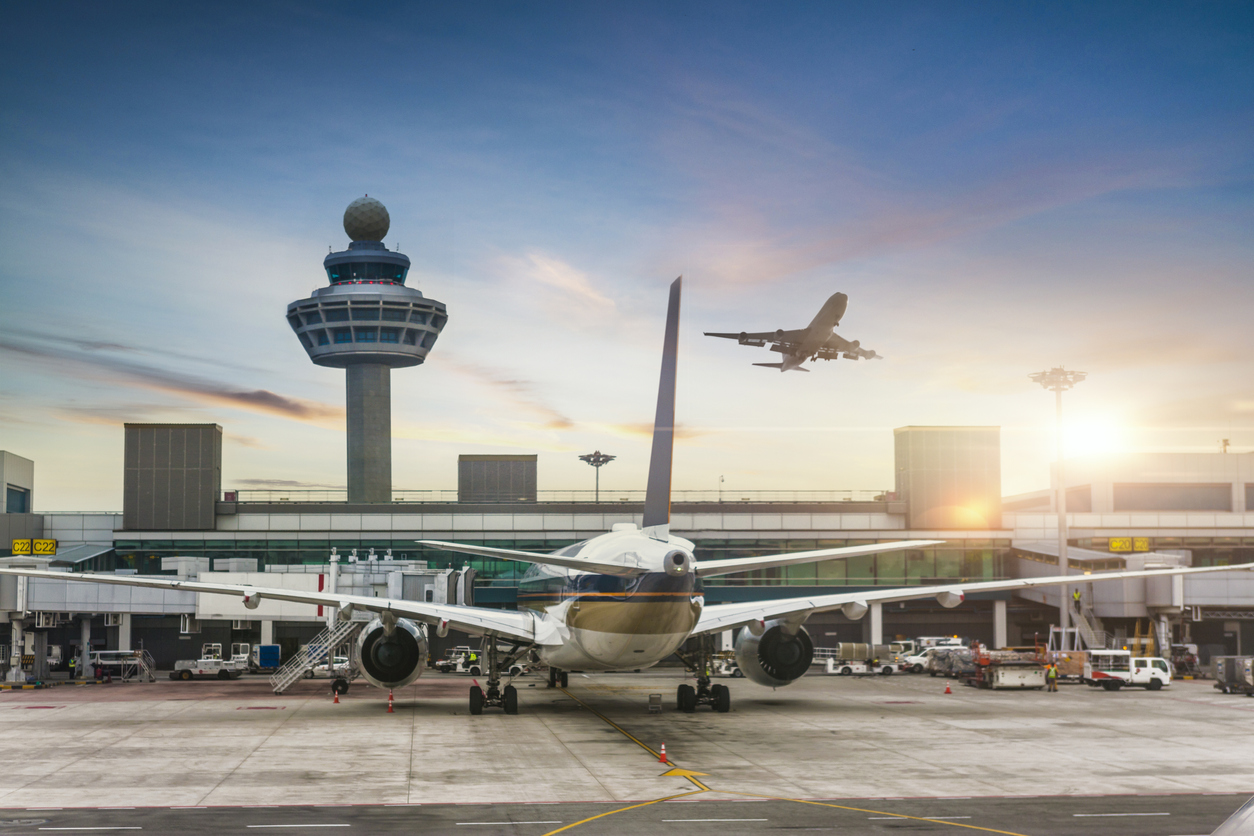Questions about the aviation sector answered:
- What is Singapore’s aviation sector?
- Is the aviation sector stable if you’re considering a mid-career switch?
- What kind of jobs are there in the aviation sector?
- What’s the salary like?
- What are the growth areas in the aviation sector?
- What courses or skills are needed to join the aviation sector?
About Singapore’s aviation sector
Singapore is ideally positioned in the region’s core. Our aviation hub has differentiated itself with world-class infrastructure and a favourable regulatory environment, leveraging Singapore’s unique geographical location and great connections to the rest of the world. This enables Singapore to attract and anchor significant international companies to propel the aviation ecosystem forward.
Our air hub connects Singapore to more than 170 cities through more than 125 airlines. Changi Airport is one of the busiest in the world, handling about 68.3 million passenger movements and processing 2.01 million tonnes of cargo in 2019.
Size of the market
As it stands, Changi Airport is one of the busiest in the world, with around 68.3 million passenger movements and 2.01 million tonnes of cargo processed before COVID-19 in 2019. One of Asia’s most connected international aviation hubs, Changi Airport links Singapore to 130 cities globally, with over 80 airlines operating more than 4,500 weekly flights.
Why is this sector important to Singapore’s economy?
Aviation is an important part of the Singapore economy, accounting for around 3% of GDP and employing approximately 200,000 people. The air hub anchors major aerospace companies in Singapore and supports other economic sectors such as tourism, manufacturing and logistics.

Aside from possessing the world’s most recognised airport, the sector has an exceptional air safety record, a respected aviation training centre and a significant aviation industry. Singapore is also home to several airline firms, internationally renowned maintenance, repair, and operations (MRO), and related aviation auxiliary service providers.
Aside from possessing the world’s most recognised airport, the sector has an exceptional air safety record, a respected aviation training centre, and a significant aviation industry. Singapore is also home to several airline firms, internationally renowned maintenance, repair, and operations (MRO) companies, and related aviation auxiliary service providers.
Growth areas and outlook of the aviation sector
Since 2022, the Economic Development Board has attracted more than $750 million in commitments from aerospace companies over the next three to five years for more than 10 new projects in Singapore. This includes:
- Plans by ST Engineering to build a new $170 million 84,000 sq m aircraft maintenance facility in Changi Airport.
- Airbus’ Asia-Pacific HQ. Airbus and EDB have signed an MOU to facilitate the establishment of a Sustainable Aviation Hub focused on technology, research, and innovation.
- Aircraft engine maker Pratt & Whitney will increase the capacity of its Singapore engine centre by more than 60%.
- Singapore Aero Engine Services Private Limited (SAESL), a joint venture between Rolls-Royce and SIAEC, announced a US$180 million (S$242 million) expansion in Singapore.
Plans to expand Singapore’s aerospace infrastructure are also materialising, with JTC Corporation building the fourth phase of a factory, aeroSpace Four, development in Seletar Aerospace Park, by 2027. The facility will house manufacturing and repair facilities capable of meeting the sector’s growing demands.
Mid-career switch: Why is the aviation sector a good choice?
From 2021 to 2022, aerospace companies in Singapore ramped up hiring, with total employment in the sector increasing by almost 3,000 to more than 21,000.
With output growing 16% year-on-year, outpacing global output, the aviation sector is actively hiring to bolster its manpower requirements. The Economic Development Board reveals that the aerospace industry is expected to hire more than 2,500 workers here over the next three to five years to support the sector’s continued growth.

These new jobs include operator, technician, engineering and corporate roles, said the Economic Development Board (EDB) on Feb 18 in an update on the industry’s performance and outlook.
Apart from attracting new entrants to the sector, aviation companies are also turning to mid-career switchers to meet their workforce needs.
Over the past six years, more than 4,300 mid-career switchers have signed up for Workforce Singapore’s Career Conversion Programme for the aviation sector. Nine in 10 are still employed 24 months after embarking on the CCP.
Types of jobs in the aviation sector
The aviation and aerospace industry comprises two different but interdependent sectors. The aviation sector refers to the technical operation of an aircraft and the services that enable planes to move across borders.
One of the popular technical fields within the aviation industry is avionics. This domain takes care of the electrical aspects of an aircraft, from in-flight entertainment systems to plane-powering transformers. Here are some examples of job roles in the sector that we’ve compiled for your info:
- Avionics technician
- QA engineer
- Aircraft maintenance supervisor
- Avionics testing technician
- Licensed aircraft engineer
Service-oriented roles involve technical literacy, which includes:
- Cabin crew
- Air traffic controllers
- Airline customer service associates
- Screening officers
- Baggage handlers
What’s the salary like in the aviation sector?
Here are some examples listed on the MyCareersFuture portal:
| Role | Salary Range |
| Regional Sales Manager | $6,000 to $7,500 |
| Aerospace Technician | $4,000 to $4,700 |
| Workshop Manager | $5,000 to $8,000 |
| Business Development Executive | $5,000 to $6,000 |
| Procurement Specialist | $3,500 to $5,000 |
| Logistics Assistant | $2,000 to $2,400 |
| Operations Executive | $2,500 to $3,500 |
| Quality Engineer | $3,000 to $4,300 |
| Mechanical Engineer | $3,500 to $4,000 |
| Operations Manager | $9,000 to $12,000 |
What courses or skills are needed to join the aviation sector?
Jobseekers or mid-career switchers keen on joining the aviation sector can up their chances of landing a job by upskilling themselves. WSG has Career Conversion Programmes (CCPs) with On-the-Job Training for the following job roles in aerospace and air transport:
Alternatively, you can gain certification for specific job roles in the aviation sector via Skillsfuture.
If you need professional advice on navigating your career journey, register here to speak to a career coach. Meanwhile, we have compiled a list of relevant articles to help you learn more about the sector.
Jobseeker’s Aviation & Aerospace Industry Salary Guide in Singapore
3 Reasons Why You Should Consider a Career in Singapore’s Aviation Sector
Back to Business: The Top Jobs in the Aviation Industry
Here’s Why You Should Consider Being an Aerospace Engineer
Top 6 Benefits of Being an Air Traffic Controller














